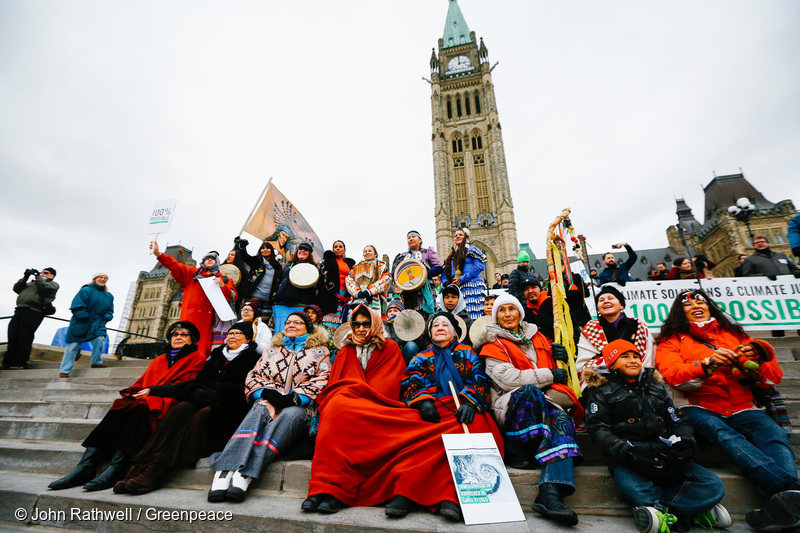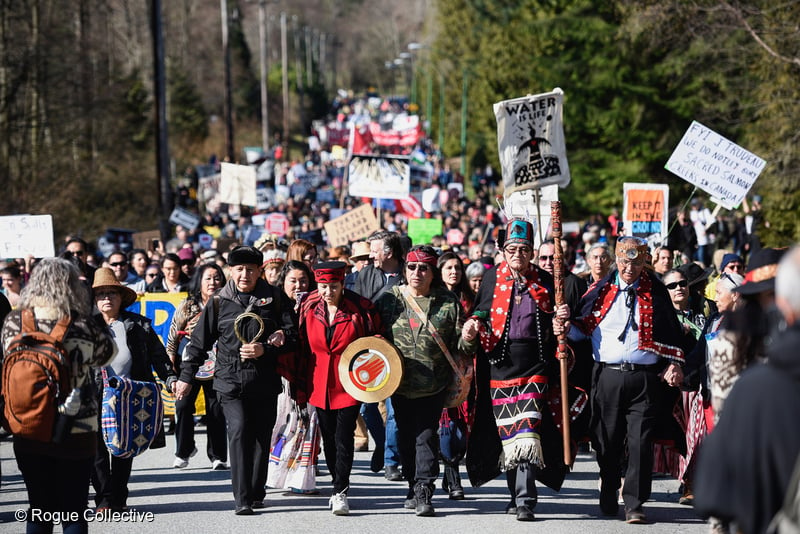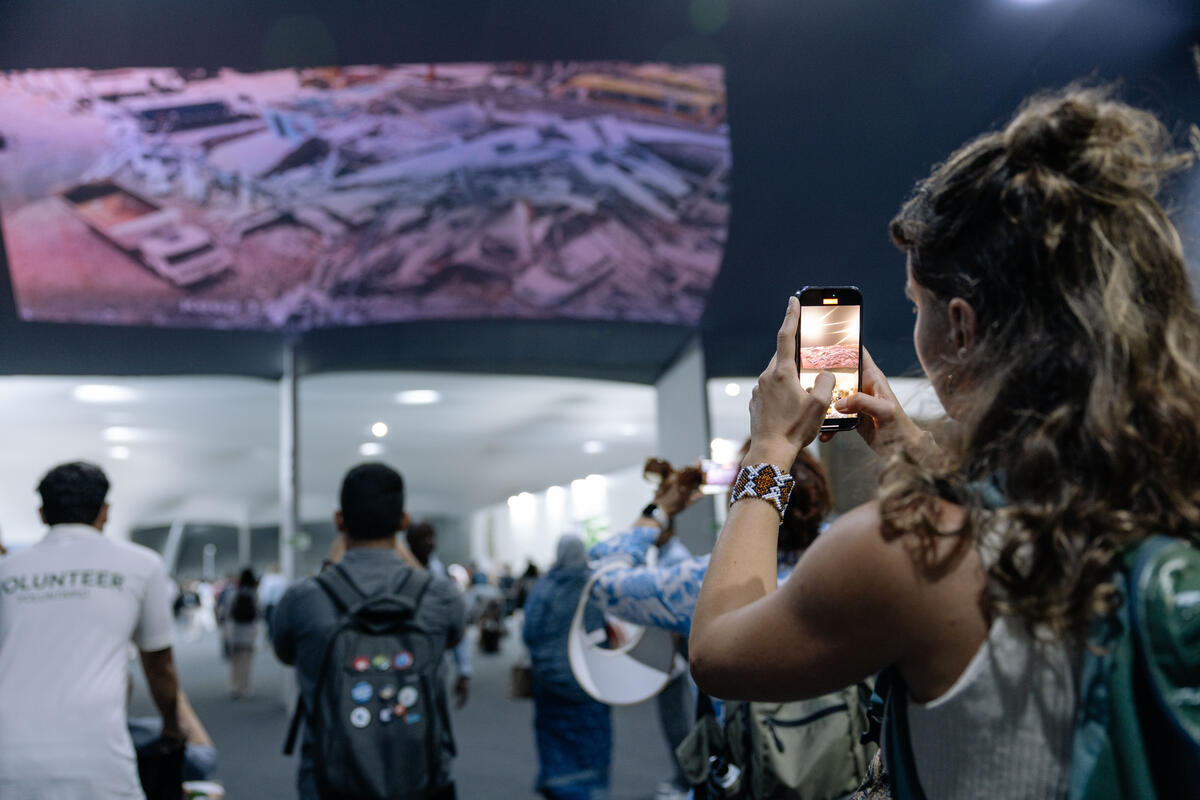Whether you’re a climate activist, survivor of sexual violence or anyone else speaking truth to power, this case matters.
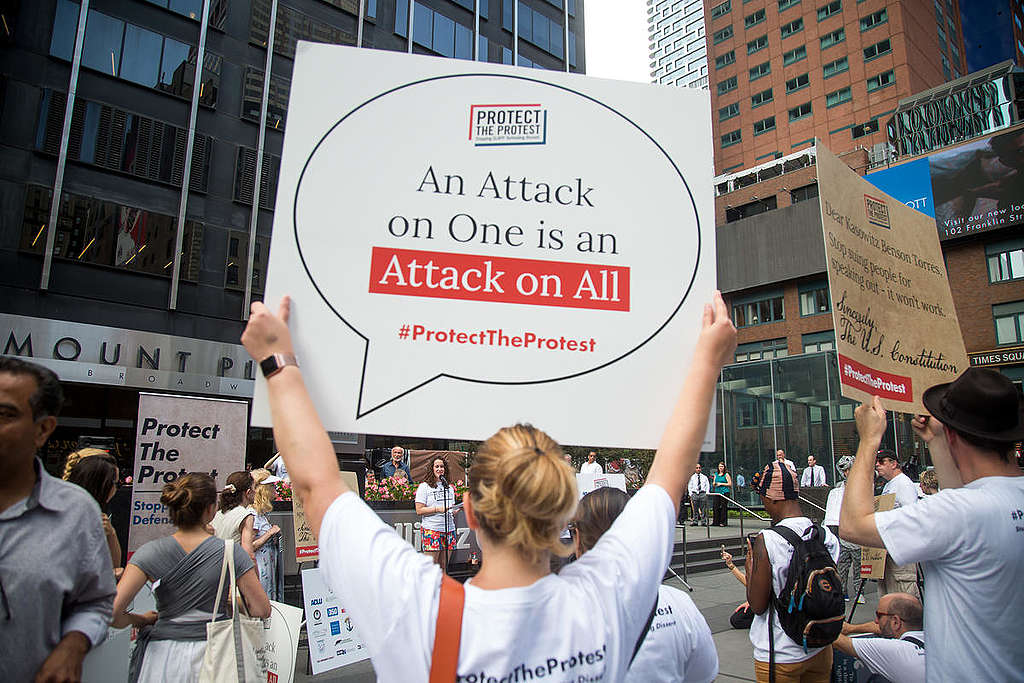
Next week, Greenpeace Canada’s legal beagles are headed to the highest court in the land to defend the rights of people in Canada to speak out against injustice of all kinds.
Right here at home, and around the world, we’ve seen powerful groups try to protect the status quo by silencing those of us advocating for change — whether that change is respect for human rights, dismantling white supremacy or policy to solve the climate emergency.
Powerful people, governments and corporations have been turning to a whole range of dirty tricks to shut down their critics: criminalizing dissent, spying, and legislating away our protection. One particular tool stands out: strategic lawsuits against public participation (SLAPPs), which are meant to tie critics up in expensive, distracting and time-consuming court battles. They’re also meant to scare others out of exposing any more wrongdoing.
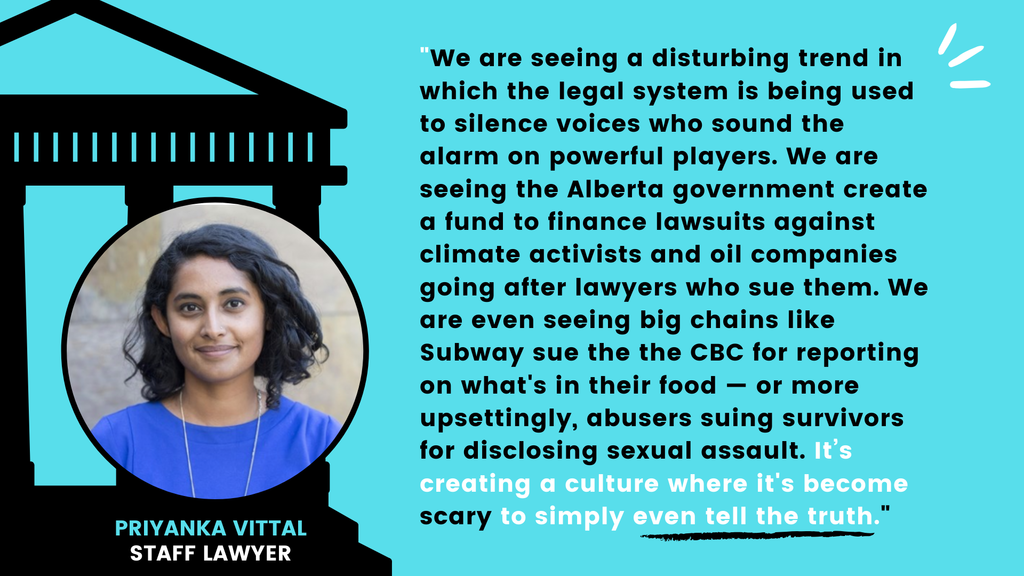
Read more with the Globe & Mail, Financial Post, CBC and Buzzfeed.
Our legal systems should be a bulwark of protection against the harmful forces of rising populism, xenophobia and disinformation. But there’s a worrying gap in the way Canadian courts interpret lawsuits brought by powerful groups against their critics. Right now, there isn’t a good enough legal test to determine whether or not a case is SLAPP. This is a problem because it makes it difficult to dismiss abusive lawsuits right away.
This leaves people speaking truth to power vulnerable to retaliatory attacks. Every one of us — from Indigenous land and water protectors to civil society groups, environmental activists, whistleblowers, journalists, survivors of sexual and gender-based violence and beyond — deserve adequate protection before the law.
But there’s another side to consider. It’s not only defendants in a legal case that matter. Less powerful groups have a right to bring to justice the perpetrators of violence, discrimination, hate speech, environmental crimes and Indigenous and other human rights violations.
For example, cities on the frontlines of climate change in the USA are suing oil companies who misled the public about the dangers their products posed to our climate for damages related to the impacts of the climate crisis. Canadian cities like Toronto, Vancouver, Victoria are thinking about it.
Curious about why cities like #Vancouver and #Toronto are looking into holding oil companies accountable for #climatechange?
— Greenpeace Canada (@GreenpeaceCA) August 26, 2019
Check out what @climatekeith has to say on @CANADALANDCMNS >> https://t.co/rKVFZ8jS6I#6ReasonsToSue #cdnpoli
So, Greenpeace Canada is going before the Supreme Court of Canada to make our case for better protections by intervening in two court cases that could decide the future of how laws designed to prevent SLAPP suits from continuing get interpreted.
We won’t be alone.
Other groups intervening in the cases include fellow environmental group Ecojustice, civil liberties groups, media outlets and associations, as well as advocate and service groups for women and survivors of sexual and gender-based violence.
One group intervening, the Toronto-based Barbara Schlifer Commemorative Clinic for women experiencing violence, says “anti-SLAPP measures simultaneously advance the public good and the integrity of the justice system by supporting a culture in which it is safer for women to disclose and possible to hold perpetrators accountable.”
I wrote the cover story of the upcoming issue of @maisonneuvemag, which is not a sentence I ever expected to type! https://t.co/gyZe6FOF5t
— H.G. Watson (@HG_Watson) September 7, 2018
With all this in mind, Greenpeace Canada will be asking the Supreme Court of Canada to recognize a balanced approach to determining whether a case has merit early on in a legal process in order to either dismiss baseless SLAPP suits or protect people bringing justified claims in the public interest against powerful groups. We also believe that a thoughtful examination of power inequities and litigants’ legal history should factor into the decision.
National and global movements to solve climate change, the biodiversity crisis, racism, sexism and economic injustice are growing. And now, more people are at risk of being silenced by powerful people and polluting industries that don’t want to change.
The law should protect, not hinder, our ability to speak out for a better world.
Want to help protect your right to speak up for yourself, your community, and our planet? Share this post and help spread the word. Thanks!


